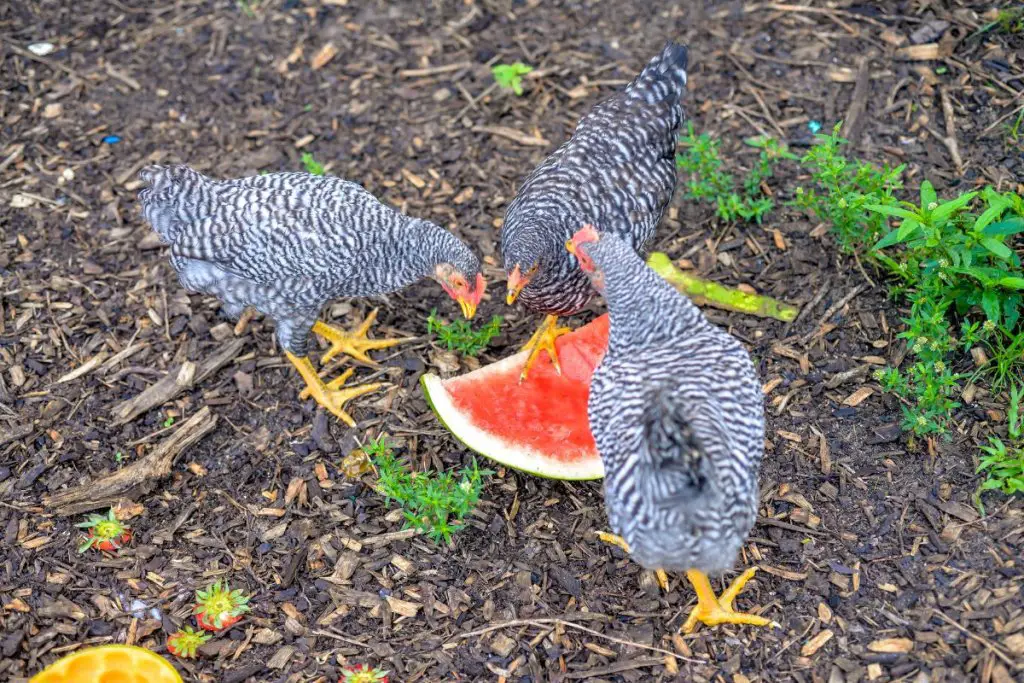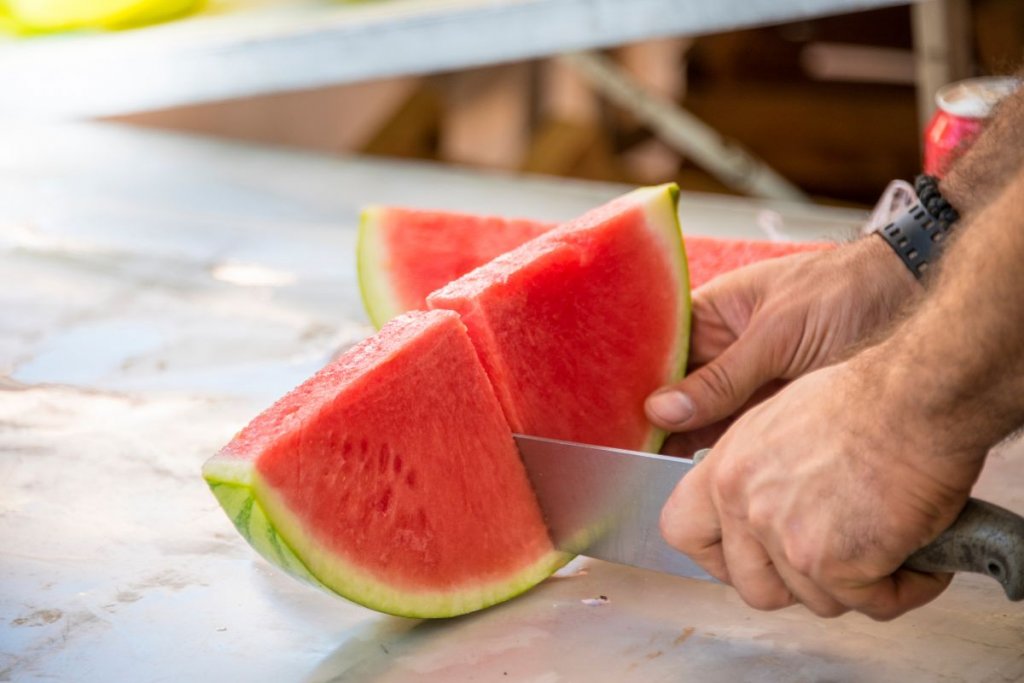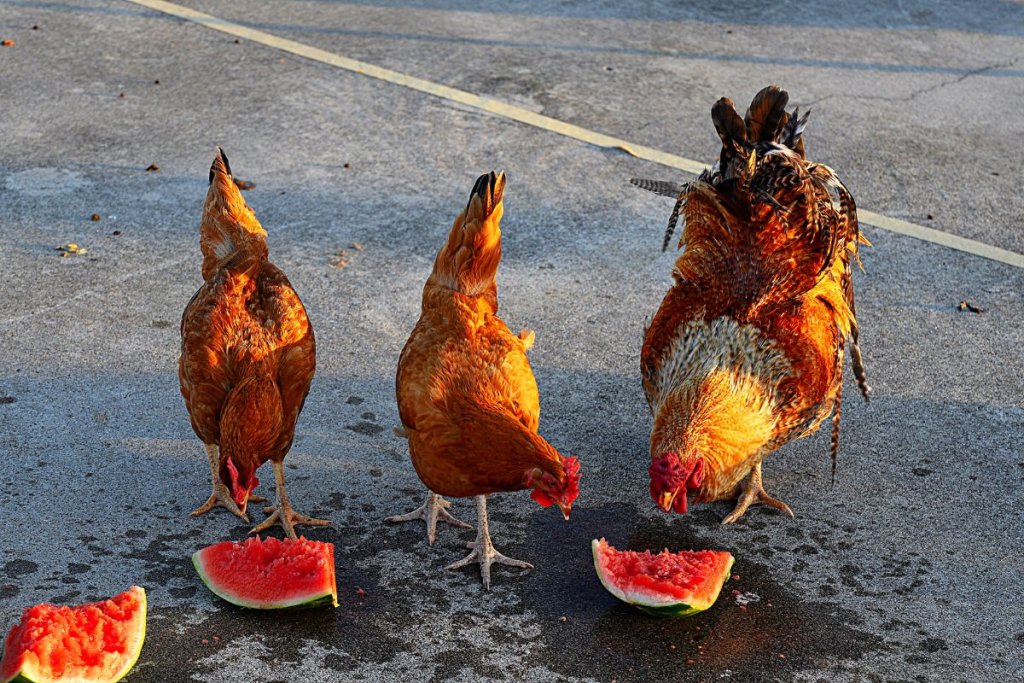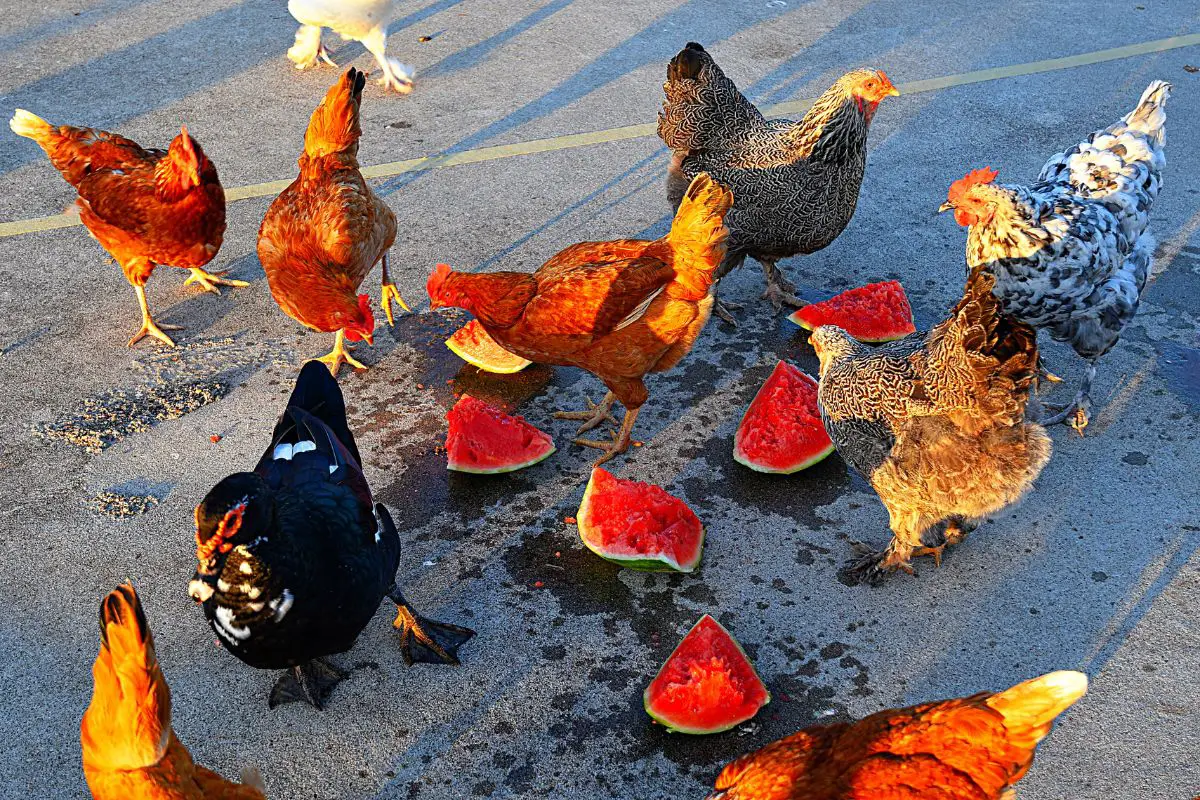Chickens can definitely eat watermelon and they enjoy this treat to cool down in summer. However, as watermelon is 90% water content, chickens should only be offered this fruit in moderation.
Some savvy chicken keepers feed chickens watermelon or other high-water content fruits and veggies such as cucumber to help their chickens face warm temperatures. Watermelon undoubtedly is a moisture-rich food, but it is good for chickens to eat?
This article will explore the ways in which watermelon can be safely enjoyed by your flock, and discuss the health benefits of this wonderful, summer fruit.
Table of Contents
Is it Safe for Chickens to eat Watermelon?
Watermelon is a safe and healthy choice for chickens to eat and contains up to 90 percent water, making it a great treat for your flock. Watermelon can help chickens cool down their body temperature through the extra moisture that they have.
The best-tasting part of the watermelon is the watermelon flesh. It’s also the easiest part to eat!

Both baby chickens and adult chickens will enjoy eating watermelon, though you should restrict the amount that they eat. Baby chicks (less than 6 weeks old) shouldn’t have more than a few bites because they fill up quickly and need to eat as much chick starter as possible to grow.
If you feed old watermelon that has rotted or is moldy, you can cause health issues in your chickens. Mold has mycotoxins that can cause serious symptoms and even death in your chickens, so be sure to only feed fresh fruits to them.
If you overfeed watermelons, you may notice that your chickens are having loose stools. Watery foods can cause this if given in excess, so if you notice this happening, cut back on giving them water-laden foods until the problem has resolved itself.
Can Chickens Eat Watermelon Rinds?
Watermelon rinds are incredibly tough and your chickens will have a hard time consuming them unless you take the time to cut them into small pieces. If you prepare them properly, chickens will eat them and watermelon rinds do offer some health benefits.

Watermelon rind is a great source of natural fiber and will help your chicken’s digestive system. It also contains vitamin c, though not in as high of an amount as the flesh of the watermelon.
Can Chickens Eat Watermelon Seeds?
Adult chickens can enjoy watermelon seeds without repercussions but baby chicks should never eat them as their tiny digestive system isn’t able to process them properly.
Only feed seedless watermelon to baby chickens (and be careful because even seedless watermelons can contain some seeds which will need to be removed).
Can Chickens Eat Watermelon Plants?
Some parts of the watermelon such as watermelon leaves aren’t usually fed to chickens, but rest assured, there is nothing harmful in the entire watermelon plant.
Chickens can consume all of it provided the plants have been rinsed in fresh water to rid them of any potential pesticides.
Can Chickens Eat Unripe Watermelon?
Yes! Chickens are able to consume unripe watermelons without harm.
Of course, ripe watermelons taste much better and are more nutritious, so if you can wait for the melons to ripen, your chickens will benefit from these fruits more.
What are the Health Benefits of Feeding Watermelon to Chickens?
Watermelon contains many healthy vitamins and minerals in addition to antioxidants that your chickens need including potassium, magnesium, vitamin A, vitamin C, beta-carotene, folate, manganese, riboflavin, selenium, niacin, and lycopene!

Watermelons help control blood pressure, reduce free radicals, help with constipation, and keep the nervous system and brain functioning at optimal levels! It also helps keep a chicken’s metabolism steady and helps promote healthy skin.

